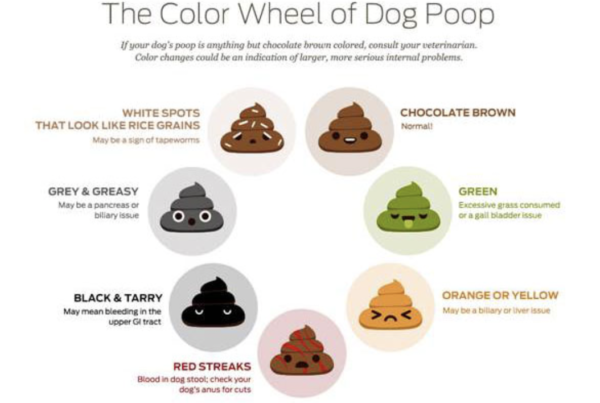A bowel obstruction, also known as a gastrointestinal blockage, is a common canine problem. Pomskies are naturally curious, and many have a desire to eat or chew almost anything. Most dog owners are aware of this issue, whether or not their own dog has experienced it.
All dogs are at risk, but young dogs are especially vulnerable. Puppies tend to be more eager to put every object into their mouths, often because they are often teething and are looking for something to chew.
If a bowel obstruction does occur, treating your dog with prompt care and medical attention can help minimize the consequences.
- Call your veterinarian immediately if you think your dog may be have a bowel obstruction.
- Only give your puppy or adult dog items that are easily digestible and safe to chew on.
- Prevent your dog from ingesting unsafe items like rocks, sticks, or toxic foods.
What Is a Bowel Obstruction in Dogs?
A bowel obstruction is a complete or partial blockage in the stomach or intestines that prevents solids or liquids from passing through the gastrointestinal tract. This blockage can also decrease blood flow and cause deterioration to portions of the bowels, along with the absorption of toxic contents. Linear foreign objects like string, rope, and carpet fibers can also cause the intestines to bunch into each other like a telescope. These blockages may either be due secondary to ingesting foreign objects or materials. In some cases, however, especially with seniors, it may be a tumor or mass.
Symptoms of a Bowel Obstruction
- Vomiting, especially when repetitive
- Weakness
- Diarrhea
- Loss of appetite
- Dehydration due to inability to hold any water down
- Bloating
- Abdominal pain
- Hunching or whining
What Causes Bowel Obstruction In Dogs?
Most frequently, bowel obstructions are caused when a dog ingests foreign objects, such as toys, rocks, bones, and more. These objects are unable to pass through the intestines and become lodged. They can also cause perforation of the stomach and intestines.
Occasionally, other medical conditions can cause bowel obstruction in dogs. These include masses or tumors, twisting of the intestines around the membrane that separates them from the abdominal wall, pyloric stenosis (narrowing of the passage from the stomach to the small intestine), hernias, and intestinal parasites.
Diagnosis and Treatment
“You should seek veterinary attention for your dog as soon as you suspect they may have ingested something that could cause a blockage,” says Dr. Jerry Klein, AKC’s Chief Veterinary Officer. “Left untreated, it could result in extensive discomfort, severe fluid loss, intestinal rupture, and even death. In the meantime, do not give your dog any more food until the problem is resolved.”
Your veterinarian will likely perform a physical exam and probably perform either a radiograph or ultrasound to try to positively confirm the presence of a foreign object or mass. Sometimes, if the object is the right size and may still be in the stomach, an endoscopy may be performed. This involves inserting a thin tube with a camera down your dog’s throat, attached to a small clasping mechanism in hopes of retrieving the foreign object.
Doctors will also give your dog fluids to correct dehydration and appropriate medications to lessen nausea and vomiting as well as pain. If an object does not pass into the dog’s stool, or if your veterinarian feels the object has been lodged too long, your dog may need surgery under anesthesia. That way, vets can open the abdomen or intestine and remove the cause of the blockage.
“A dog owner should never pull a foreign object that is protruding from the dog’s rectum because it might cause serious damage,” says Dr. Klein.
After treatment, you should follow your veterinarian’s recommendations and monitor your dog for any recurring symptoms. Keep activity level low, so no running or long walks for a few days. Feed a bland diet of dry food with no treats for several days before slowly re-introducing the previous diet. Also, make sure to replenish lost fluids by offering them lots of fresh water to avoid dehydration.
Bowel Obstruction Prevention
The best way to prevent bowel obstruction is to discourage and block your dog from trying to eat certain types of bones, sticks, rocks, and similar objects. Keep foods that are toxic to dogs and other temptations, including garbage cans, out of reach. Teaching the “Leave It” command can prevent your dog from attempting to explore something harmful. Only give your puppy or dog toys and treats that are safe and appropriate for them to chew. Call your veterinarian immediately if you suspect or know your dog ate something unusual.
Note: If you have questions or concerns about your dog’s health or possible symptoms, be sure to contact and consult with your veterinarian right away.
Source: https://www.akc.org/expert-advice/health/bowel-obstruction-in-dogs/


